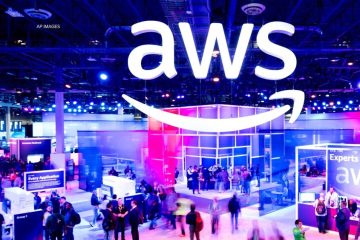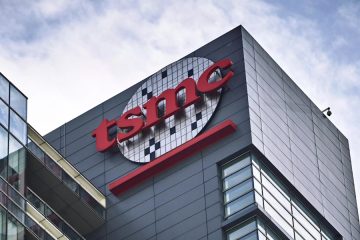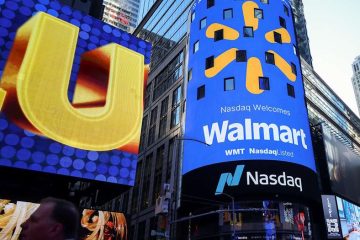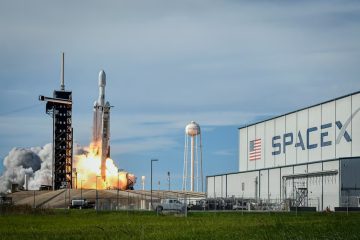American businesses destroy their outlooks due to the unpredictability of tariffs

The chief executives of American Airlines, PepsiCo, Procter & Gamble, along with numerous other prominent U.S. firms, have cautioned that the unpredictable nature of tariff threats renders strategic planning nearly unfeasible and is unsettling consumers. American, Southwest Airlines, and Alaska Air Group informed investors and analysts that leisure travel had already shown signs of weakening, prompting them to revise their full-year projections due to the challenging economic environment that complicates forecasting. Procter & Gamble, the producer of Pampers diapers and Tide detergent, announced that it was contemplating an increase in prices for certain products. Auto-industry groups representing General Motors, Volkswagen, and Toyota have sent a letter to President Trump urging him to reconsider the 25% tariff on car parts set to take effect on May 3, as it will increase the costs associated with purchasing and repairing cars and trucks.
“We don’t know what is going to happen,” Robert Isom, chief executive of American, informed investors and analysts on Thursday. Thus, the airline is exercising caution. “What does that signify?” It indicates that our hiring levels are reduced. This implies that we may not introduce as many aircraft, potentially. It signifies a decline in total economic activity.” The same frustrating limbo persists for individuals attempting to organize vacations, Isom remarked, noting that no one enjoys uncertainty when it comes to allocating their hard-earned money.
Numerous executives, including Goldman Sachs CEO David Solomon and Virgin Group founder Richard Branson, have cautioned Wall Street and the Trump administration about the detrimental effects that tariffs will inflict on the economy. Branson remarked that Trump’s unpredictable trade policies could inflict enduring damage, destabilizing a thriving economy to its very foundation. “It’s just such a pity because everything was going so bloody well up to about three months ago,” Branson said.
White House spokesman Kush Desai stated: “Under President Trump, business leaders are making trillions in historic investment commitments [and] driving the robust private-sector hiring reflected in multiple jobs reports.” CEOs have endeavored to reassure investors of their capacity to navigate the challenges posed by tariffs; however, many expressed a desire for the unpredictable approach of the Trump administration’s tariff policy to conclude in the near future. In the context of future planning and profitability forecasting, the ongoing shifts in guidance have led several companies, such as British drinks maker Diageo, to revise their outlook downward. It prompted United Airlines to issue two forecasts: one for a stable economy and another for a recessionary one.
Trump’s 90-day delay on imposing what are referred to as reciprocal tariffs has only heightened the uncertainty, Solomon informed CNBC. The current atmosphere contrasts sharply with the sentiment that prevailed when Trump assumed office in January, a time when the World Economic Forum in Davos was filled with optimism regarding his potential to initiate a new era characterized by reduced regulation. “The level of uncertainty is too high,” Solomon stated. “It’s not healthy and it’s affecting investment, spending and planning, and that will have an effect on growth and the economy.”
Consumers, in the meantime, are keen to preemptively address the forthcoming impact on their finances, particularly concerning major purchases. Retail spending, especially in the electronics and automotive sectors, has seen a notable uptick in recent weeks, as consumers rush to make purchases ahead of anticipated price hikes on a wide range of items, from television sets to trucks, which could rise by hundreds or even thousands of dollars, according to Richard Fairbank, CEO of Capital One Financial, a credit-card issuer. The current trend has contributed to increased spending, at least for the time being, despite a decline in consumer sentiment. Simultaneously, the proportion of individuals who are making merely the minimum payment on their credit cards—a clear indicator of their difficulties in managing financial obligations—remains elevated compared to the period before the pandemic.
Companies indicated that Americans may soon face higher costs for iPhones at AT&T and Verizon, as well as for new homes constructed by Pulte. According to CEO Hans Vestberg, shoppers will face higher prices for smartphones, as Verizon cannot completely absorb the entirety of the tariff costs. “If the tariff is going to be as high as they say on the handset,” he added, “that’s just not going to be possible.” According to AT&T chief John Stankey, phones and other devices rank low on the list of items consumers are willing to relinquish, despite their increasing costs. “Unfortunately, for the customer, we’re going to have to come up with some new ways for them to figure out how to digest that increase.” In recent years, both companies have implemented increases in rates and fees associated with certain wireless and broadband plans. This month, Verizon unveiled a three-year price lock guarantee on select service plans, aiming to bolster confidence among its customer base.
PulteGroup, having sold over 31,000 homes last year at an average price of $500,000, indicated that the addition of tariffs on numerous building materials will result in an increased price tag of $5,000. With an accumulation of duties affecting a range of items from porcelain and tile flooring to water heaters and circuit breakers, the cost of every new home will increase by 1%. “It’ll impact every single price point and consumer group that we serve,” stated James Zeumer, a vice president at Pulte. Procurement teams are employing various strategies to reduce costs, he added. “Keeping it to the 1% that we’ve talked about is significantly less than what you’re hearing from the broader home-building universe,” Zeumer said.
A number of CEOs voiced their dissatisfaction regarding the fact that manufacturing and hiring in America do not shield them from the effects of Trump’s tariffs. RTX, an aerospace and defense company, is investing nearly $350 million to expand its facilities in Tucson, Ariz., and Asheville, N.C. The company anticipates facing a potential $850 million impact this year due to tariffs, despite implementing cost-cutting measures, raising prices, and securing various duty exemptions. “Do the rates remain unchanged as they have been announced?” What is the duration of their stay in position? Can we explore additional avenues for mitigation? Do they get rescinded and have additional implications? inquired Neil Mitchill, RTX’s chief financial officer. “I don’t know.”
A handful of CEOs expressed their backing for tariffs. Steel Dynamics CEO Mark Millett remarked that tariffs on imported steel and aluminum were “extremely beneficial.” Whirlpool, the Michigan-based appliance manufacturer operating 10 plants in the United States, stated that tariffs will create a more equitable competitive environment. 3M, the Minnesota-based manufacturer of a diverse array of products, ranging from packing tape to power cables, communicated to investors the significance of maintaining its relationship with China. With 110 factories globally, the company is well-positioned to swiftly adapt the flow of its shipments. “We ship products from the U.S. to China that we could also, instead, ship from Europe into China,” stated William Brown, CEO of 3M. The company is exploring free-trade zones, pricing strategies, and overhauling global logistics to adapt to current conditions. “There are measures we can take to alleviate some of this impact and maintain the strong relationship and excellent business we have in China.” Once more, it constitutes 10% of our company. “It grew double digits last year,” Brown said.
Elon Musk, chief executive of Tesla and a prominent supporter of the president, appeared disheartened when queried about tariffs this week following the announcement of the worst earnings the electric-vehicle manufacturer has experienced in years. Musk exhaled with a sense of resignation before tackling the issue of the trade war, subsequently stating that he has directly urged Trump to implement lower tariffs and intends to persist in this advocacy. “I just want to emphasize that the tariff decision is entirely up to the president of the United States,” Musk stated. “Whether he will heed my counsel is a matter for him to decide.”








